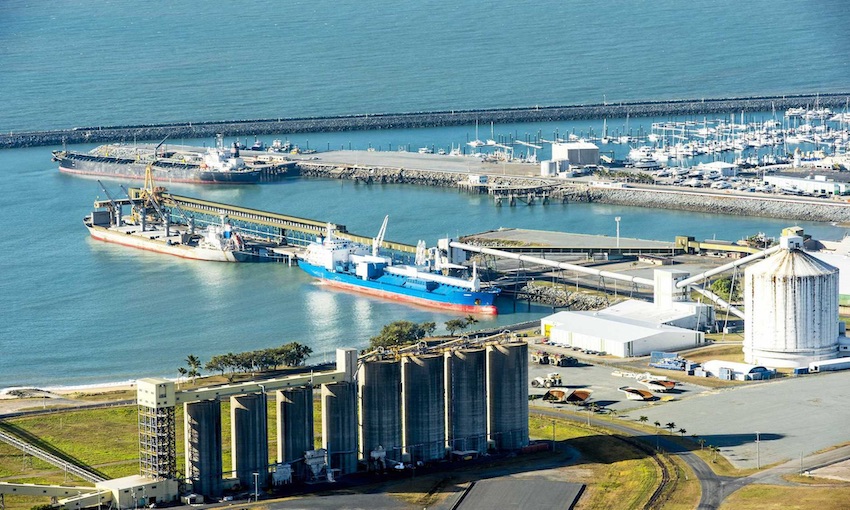TRANSPORT minister Mark Bailey made the announcement that the Port of Mackay has recorded 3.17 million throughput tonnes in 2019-20, supporting jobs and industry in the region.
“COVID-19 has impacted global economies and Queensland hasn’t been immune,” Mr Bailey said.
“What we’ve seen at our ports, however, is that thanks to a strong health response we’ve been able to continue facilitating trade.”
North Queensland Bulk Ports Corporation CEO Nicolas Fertin said the Port of Mackay’s results were extremely positive.
“We’ve continued to keep trade flowing safely and efficiently through Mackay during what has been a difficult time for markets from Queensland to the world,” he said.
“What is pleasing is the market is recognising the value of the Port of Mackay and its strategic location. We’re committed to growing the Port of Mackay further in support of the region’s jobs and the community of Mackay.”
Member for Mackay Julieanne Gilbert said the latest trade numbers reaffirm why the Palaszczuk Government is committed to keeping the port in public hands.
“It’s why we’re delivering the $497.3m Mackay Ring Road and have committed funding for the Mackay Port Access Road project,” Mrs Gilbert said.
Mrs Gilbert said in particular, it was another encouraging year for breakbulk cargo at Mackay with strong appeal for agricultural and mining-related cargo, machinery and project infrastructure.
“In 2019-20 we had 11 roll-on-roll off vessels stop at the port. In total, 96,000 of throughput tonnes of breakbulk cargo came through the port destined for both central Queensland and beyond.
“This total is more than 30,000 tonnes up on the 2018-19 financial year. What is most encouraging, is the diversity we’re seeing in the type of cargo coming through the port from destinations including North America, Europe and across Australia.”
The 3.17 million tonnes is just shy of the 2012-13 record of 3.29 million tonnes. For petroleum, it was a record high year, with 1.67 million tonnes (two billion litres) of fuel trade facilitated through the port.
Other commodities exported through the Port of Mackay include sugar (raw and refined), grain, ethanol, magnetite, fertiliser, scrap metal and tallow.
Mr Fertin said NQBP’s strategy was to gear the port up further in the early months of this financial year.
“In November last year, we announced $2.8m in upgrades for a new laydown and washdown facility and service improvements to move 760m powerlines underground to improve the flow of trade through Mackay. We’re pleased that these projects are nearing completion,” Mr Fertin said.
The 2400-square-metre laydown and dual washdown facility will extend the original footprint operated by Northern Stevedoring Services to assist the washing down and storage of imported goods subject to biosecurity controls.
“We hope this facility will give even more confidence to mining and agriculture machinery businesses interested in using the Port of Mackay to import goods from international origins,” Mr Fertin said.
“Thanks to NSS and CMX Global Logistics (on behalf of Emeco) we were able to test this infrastructure with the washing down of five Caterpillar 789C Dump trucks, each weighing more than 115 tonnes.”
The trucks, previously utilised in the Bowen Basin, will be shipped domestically to be re-deployed in Western Australia.
NQBP is a Queensland Government-owned corporation also responsible for the strategic ports of Abbot Point, Hay Point and Weipa in far north Queensland.

